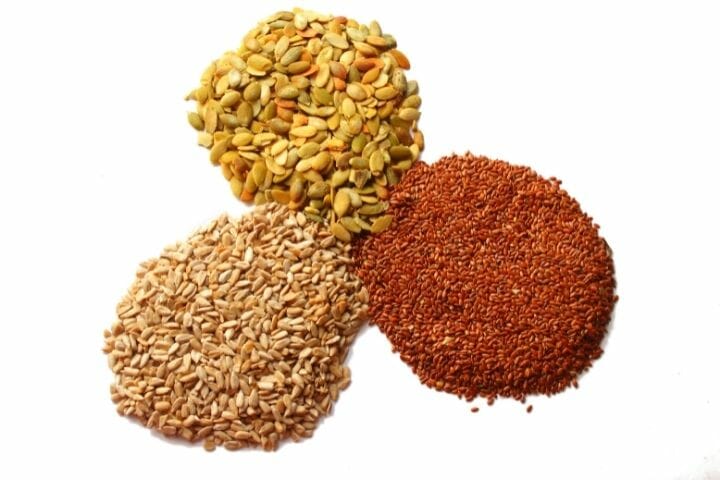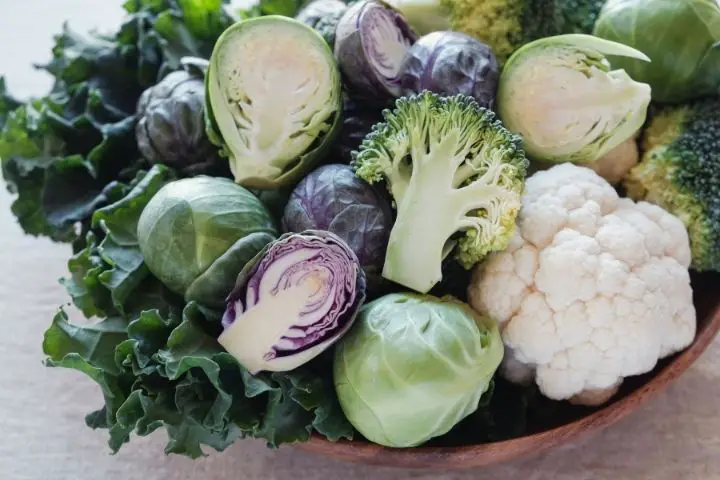Alzheimer’s disorder causes your brain to lose its cognitive and mental faculties in slow progression. Let us look at some foods that fight Alzheimer’s and keep you safe from this chronic and fatal disease.
Contents
A lot of research has been done on Alzheimer’s and the right diet to follow. A lot of research is still being done to make the life of patients who have Alzheimer’s easier.
Research has discovered some causes of Alzheimer’s disease which are responsible for increasing the risk of Alzheimer’s. These are age, genetics, health, environmental, and lifestyle factors that may contribute to Alzheimer’s Disease.

A nutritious diet can help with keeping your brain active, alert and your body physically fit. In this article, we will talk about some food items recommended for Alzheimer’s patients and help reduce the severity of degeneration.
Can Foods Help Anyone Delay Dementia And Alzheimer’s?
When a person eats food, then the effect of that food can be seen on the ability of the brain. Food is connected to one’s thinking and memory skills. For an Alzheimer’s patient, some specific food (with a particularly healthy diet) is necessary.
But how does food affect your brain? When you eat a specific diet, then there is a higher chance that these particular foods may affect the biological mechanisms in your body. For example, inflammation and oxidative stress enhance symptoms of Alzheimer’s.
It is also believed that some risk factors of Alzheimer’s can also be reduced through the right foods. These risk factors of Alzheimer’s are diabetes, heart disease, and obesity.
Other risk factors of Alzheimer’s are age, family history, and heredity that are not changeable.
Still, much positive evidence is available that the effect of nutritious foods and great care can be exemplary. Alzheimer’s or its effects may differ from person to person. Apart from this, If a person notices its symptoms, treatment should be done at the right time because taking it lightly may not be suitable for anyone.

What Does Science Say About Alzheimer’s and Food?
Recently a study was done by Rush University Medical Center’s researchers in Chicago, which is about the healthy diet plan, and they named it ‘MIND.’ The research combined a lot of foods, grains, and vegetables and also told how much quantity a person should take daily.
They discovered that by having these foods, the chances of getting Alzheimer’s are reduced by more than 50%. Even if you don’t stick to this recommended diet wholeheartedly and consume it in moderation, the risk of Alzheimer’s can be reduced by up to one-third.
You might like to read: Managing Alzheimer’s- A Guide For Caregivers And Seniors
Mediterranean Diet, Dash Diet, and MIND Diet
MIND stands for “Mediterranean-DASH Intervention for Neurodegenerative Delay.” It’s also called the Alzheimer’s diet, a combined formula of the primary two diets, Mediterranean and DASH.
The Mediterranean diet and DASH diet are both known to be excellent in their own way. Their benefits go far beyond just brain-related problems; they are known to help with heart disease, blood pressure, diabetes, and many other chronic problems.
However, the MIND diet used ideas from both these diet forms and created a new amalgam that was focused more on brain health. The diet has shown significant health benefits for the mind.
In Alzheimer’s patients, the problem of brain decline is common, and this diet has been designed especially for preventing or lowering its risks in profitable amounts. For Alzheimer’s patients, it’s a must-follow diet.

Foods That Fight Alzheimer’s
In Alzheimer’s disease, the mental function of any person becomes weak, and his ability to understand and remember things starts decreasing slowly over time. So let’s see some of the vegetables, fruits, or other healthy grains from the MIND diet suggestions that are very important for Alzheimer’s patients.
#1 Omega-3 rich Fish and Olive Oil
Elements found in Omega 3 fatty acids and DHA prove to be very effective in fighting this disease and Dementia. Many studies say that a person should consume 200 mg (recommended amount) of DHA daily for a healthy brain.
But in the U.S., its intake has been reported to be only about 80 mg. But if you consult your doctor for the amount of this diet’s intake, it will be good. The foods rich in omega-3 fatty acids or DHA are olive oil, fatty fish (tuna), salmon, mackerel, and flax seeds. These foods are best for a healthy brain.
#2 Seeds for brain health
When many Alzheimer’s patients were fed seeds, there was a significant improvement in their brain health, proving that they may be essential for brain health. Examples of seeds are flax seeds, sunflower seeds, and pumpkin seeds.
They contain all nutrients and antioxidants (vitamin E, omega-3s, zinc, and choline) and are essential for lowering the risk of cognitive decline or impairment. So, you can sprinkle them in your salad. Also, you can make muffins or puddings or eat them as snacks every day.

#3 Fish for cognitive impairment
Fish is considered the most suitable and crucial food for reducing cognitive impairment and declination. Fish is associated more with cognitive decline’s lower risk.
After this, next comes some vegetables which are somewhat less effective than fish yet best. Then there are other foods from MIND diets needed or recommended to reduce the risk of Alzheimer’s or insignificant effects.
A study was conducted in China with older adults. They were asked to eat fish for five or six years, once a week. And on the other hand, another group of older adults was asked to eat fish only once a month. Those who ate fish once a week had a 54% lower risk of Dementia in comparison to that group of older adults who ate fish once a month.
#4 Spices for lowering the inflammation
Polyphenol compound is essential for a healthy brain because it shows several benefits in our memory function. At the same time, it is very advantageous for your brain.
So eating cumin, cinnamon and sage can help you because these species are a good source of polyphenol compounds. These spices effectively eat away at your brain plaque and lower the inflammation for reducing the risk of cognitive impairment.
They also taste good, and you can use them in your seasonal meals. So from today, include many spices in your kitchen, making your food powerful and your life super healthier.
You might like to read: Link Between Diabetes and Alzheimer’s – A Caregiver’s Guide
#5 Cruciferous Vegetables
Including cauliflower, broccoli, brussels sprouts, and other cruciferous vegetables in your diet can help lower the levels of homocysteine. And it is possible due to its richness in carotenoids and B vitamins.
Homocysteine is an amino acid, and high homocysteine levels may cause vitamin deficiency issues. So it is associated with Dementia, cognitive decline, and brain atrophy.
So, if an Alzheimer’s patient starts sautéing cruciferous vegetables olive oil or garlic oil or using them to make its smoothies, condiments, and soups, he also gets excellent results.

#6 Whole grains
To fight issues like Dementia, the use of whole grains is highly recommended by doctors. They retain mostly plant-based nutrients compared to refined grains (white flour). To cut Alzheimer’s risk, many beneficial nutrients are found in whole grains.
Whole grains are recommended in both DASH and Mediterranean diets. Consuming them saves a person from the risk of Alzheimer’s and increases the chances of avoiding many such diseases, which are harmful to his body.
#7 Nuts and berries
Because many fiber, fats, and antioxidant elements are found in nuts, they should be consumed four or five times a week. According to the MIND diet, it is perfect for a healthy brain. Nuts can be used as a more nutritious snack every day.
They are beneficial for lowering the bad cholesterol in your body and are always considered effective for your healthy heart.
Berries are the most recommended food to lower the risks of Alzheimer’s. According to the Mind Diet, it must be consumed twice a week!. Apart from berries, you can also eat strawberries that help protect your brain. Blueberries are also known as potent foods.
#8 Wine for Dementia
Yes, wine can lower the risk of emerging Alzheimer’s. Also, when consumed with cheese (once a week), it’s considered suitable due to its positive results. Red wine is considered best for lowering the risk of dementia.
Take one glass of red wine every day to sharpen your mind and to think widely. Grape skins contain polyphenol (resveratrol) that can reduce Alzheimer’s risk.
Over five million Americans are affected by Alzheimer’s. So, in our hectic life, we need some nutritious foods, grains, and healthy vegetables, which keep our health good and at the same time increase our ability and inner power to fight against any disease.

Foods To Avoid In Alzheimer’s
We talked about which foods should be eaten to reduce the risk of Dementia and Alzheimer’s. At the same time, we should also know which foods should not be eaten or used in limited amounts in Alzheimer’s.
So the foods that should be avoided are cake, pastries, different fast foods, butter or stick margarine, and deep-fried stuff. Let us tell you that when food is fried in large quantities, a chemical is released from it, which is considered very harmful for health and the brain. So start avoiding them now.
You are not forbidden to eat butter, stick margarine, and cheese, but you have been asked to consume only its limited quantity.
Wrap Up
The possibility of memory loss in any person with Alzheimer’s is very high. The MIND diet is proving itself to be very effective in reducing the harmful effects of this disease.
This diet encourages us to consume berries, nuts, leafy vegetables, whole grains, fish, berries, beans, omega3 fatty acids, wine, and seeds. If these foods are consumed in a recommended amount, then the person’s brain health can be improved, and memory loss can also be reduced.

We hope you were able to pick up a few important tips and tricks that will help you make the right diet for your loved one who is suffering from Alzheimer’s. Do let us know if we missed out on anything!
If you liked the ideas and the content, please do share it with others who are in a similar position as yourself.
